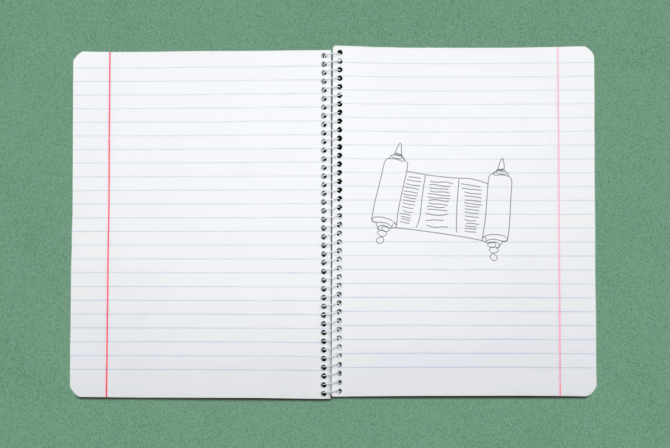Tova Ross’ post last week titled “Why Do So Many Moms Regret Having Kids?” really upset me. I respect her as a writer and mother and mean no disrespect to her in any way. She wrote about the recent internet “trend” (I hate to call it that; it’s more of a consequence of the internet existing as a place to share dark things anonymously I suppose) of women posting their regrets about having children. I believe that Tova meant well with her post, and she declared that she wasn’t sure what her point was, except to say that she felt sorry for women who have these regrets and even sorrier for their children. Ouch.
Tova acknowledged that she has sympathy for women who long for their single days, or long for time alone, but she recommends that if those thoughts are not “fleeting” then there may be something very wrong. Double ouch.
I read some of the comments posted in response to Tova’s piece on Kveller, and I was relieved to see women posting that they have regrets that are not fleeting, but that they don’t feel they are bad mothers because of it. I fear that a divorced woman such as myself has little right to share my thoughts on this topic, since if I express regrets, the reader might simply say, “Oh, well, her life didn’t turn out like she wanted, so of course she has regrets.”
At the risk of judgment, I will declare that I hold the experience of being a mother as far more complicated than some would like it to be. I think that there are a large range of reactions and feelings surrounding the changes that occur when one decides to be a mother. The demands on your time, the significant changes to your body, and the myriad responsibilities involved with being a mother are constantly wearing on you, but they are not the same for all women. The degree to which you have the kinds of regrets in varying intensity and duration depends upon many factors. To name just a few:
1. Your style of parenting and how much time you actively spend with your children. (In my experience, for example, breastfeeding on demand with no use of formula and not feeding baby solids until a year and being the primary childcare for my boys and co-sleeping made my life look very different than moms who didn’t do those things.)
2. Your childhood experiences and the skills you mastered to handle stress and unpredictability.
3. Your family and friends as a support system including, for example, having grandparents helping with childcare.
4. Your spouse’s attitude.
5. Whether or not you choose to have a nanny, housekeeper, or use daycare which tends to correlate–but doesn’t always–with how much financial resources you have.
You can feel several things at once. You can feel proud of your choices and simultaneously miss things you can’t have. I think that’s what missing from Tova’s piece: an acknowledgment that sometimes we can’t have it all and some of us are very aware of the simultaneous joy and sadness that awareness brings.
I share Tova’s sadness for women who have profound persistent regrets which consume them and make them unable to function productively. Those women would do better to obtain mental health support to understand their framework for their lives as mothers. La Leche League International was the mental health support for all of the women I knew who chose to breastfeed. It was the place we took our regrets and our struggles, and it was in mother-to-mother support groups that we formed friendships and learned tools that sustained us through those hard times.
I envy women who are constantly patient and loving and never have regrets. And I am sad for women who don’t get help processing their grief and loss surrounding becoming mothers. But in the middle of those extremes are those of us who for many reasons are aware and conflicted about the constant closing of doors that occur as so many others open.
Most days, I pray for the ability to focus on the opening doors. I watch my sons contemplate the stars. I see them hold hands as they fall asleep and I hear them whispering about loving each other. I wonder who they will fall in love with, and if I will always be the person who can make it all better with my arms around them. Every time they tell me they love me, a thousand doors open.
But some days, I can’t see past the closed doors. Some are sealed shut or held by locks I cannot break. I am grateful to have the support of friends, loved ones, and a therapist who help me acknowledge the losses I have had–that many mothers have had–while directing me ever gently to the new doors that appear daily.
Forgive me as I exhaust this metaphor: of these new doors, some are closed, but have no locks to fetter them. My job as a mother is to try them all, to grieve the ones that won’t open, to understand the ones that have already closed, and to never give up looking for ways to open them.
My sons guide me and they are the source and inspiration for my life as a mother. They represent a union that is no longer, but which produced them and forever sustains them. The regrets I have make me who I am, and I hope no one feels sorry for me or my children as I struggle authentically to find my place, to help my sons find theirs, and to never stop trying to see more open doors than closed ones.
Love Mayim? Get her latest blog posts delivered straight to your inbox.







